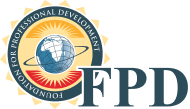The Postgraduate Diploma in Distance Higher Education is designed to enable potential, new and current lecturers to facilitate their courses online. The development of this programme follows a broad move towards online learning (e-learning) and the tendency to supplement contact programmes with a range of online teaching technologies, at both public and private higher education institutions worldwide.
THE FINANCIAL BENEFITS OF ONLINE STUDY
• Pay per module as you progress with your studies.
• Register and pay for only one or two modules at a time (depending on the curriculum requirement).
• Six start dates a year, allowing you to save for each module.
• Completed application form.
• Certified copy of South African Identity Document (South African citizens only) / official passport (foreign students).
• Certified copy of highest qualification and any other certification as proof of meeting minimum entry requirements for this programme.
• SAQA and USAF verification as it is required for verification of recognition of foreign qualifications.
The following supporting documentation must be included if you are applying for CAT:
• Certified academic transcript(s) of training from a previous educational institution or FPD at the same NQF Level.
• Study guide that supports the credit claim at the same NQF Level.
The following supporting documentation must be included if you are applying for RPL:
• Testimonials/reference letters from previous or current employers.
• Portfolio of Evidence of your work experience and skills equivalent to an NQF Level.
• Full curriculum vitae indicating employment history and work experience in relevant field.
• Portfolio of evidence of research project (if applicable).
We recommend having the following to study online:
Computer skills:
Computer skills and the ability to perform common tasks
Email and file management (create, access, edit, save, upload and download documents)
Ability to use a word processing program
Web-browsing skills
Computer requirements:
Laptop or PC
A stable internet connection
Video recording
Audio storage and playback
Audio recording
Web browsing
Document creation
Access to social networking
E-book storage and reading
Study notes storage and reading (PDF, MS Office)
Video storage and playback
To apply for this qualification, a student requires:
- A relevant Bachelor’s Degree at NQF Level 7
OR - An Advanced Diploma at NQF Level 7
AND - Appropriate working experience related to higher education, distance higher education or post-secondary technical and vocational education and training, which will be regarded as important determinants.
This programme will run over 2 years and is split into modules that are eight weeks long. This includes seven weeks of study and a one-week break.
, meta_description=The Postgraduate Diploma in Distance Higher Education gives educators the skills they need to translate teaching from the classroom to online platforms., hs_lastmodifieddate=1768210443949, fee_per_credit=109941, main_subtext=FULLY ONLINE, hs_object_id=3737687514, download_pricing=3c3adc26-ba38-49b7-879d-4e2003189092, hs_object_source=CRM_UI, hs_object_source_user_id=43902089, applyby=1773187200000, total_modules=12, main_title=, header_bg_image=https://online.foundation.co.za/hubfs/FPD%20Postgraduate%20Diploma%20in%20Distance%20Higher%20Education-3-1.webp, hs_updated_by_user_id=48203977, dynamic_page_slug=Postgraduate-Diploma-in-Distance-Higher-Education}- Days
- Hours
- Minutes
- Seconds
Postgraduate Diploma in Distance Higher Education
The Postgraduate Diploma in Distance Higher Education is designed to enable potential, new and current lecturers to facilitate their courses online. The development of this programme follows a broad move towards online learning (e-learning) and the tendency to supplement contact programmes with a range of online teaching technologies, at both public and private higher education institutions worldwide.
THE FINANCIAL BENEFITS OF ONLINE STUDY
• Pay per module as you progress with your studies.
• Register and pay for only one or two modules at a time (depending on the curriculum requirement).
• Six start dates a year, allowing you to save for each module.
Requirements
To apply for this qualification, a student requires:
- A relevant Bachelor’s Degree at NQF Level 7
OR - An Advanced Diploma at NQF Level 7
AND - Appropriate working experience related to higher education, distance higher education or post-secondary technical and vocational education and training, which will be regarded as important determinants.
We recommend having the following to study online:
Computer skills:
Computer skills and the ability to perform common tasks
Email and file management (create, access, edit, save, upload and download documents)
Ability to use a word processing program
Web-browsing skills
Computer requirements:
Laptop or PC
A stable internet connection
Video recording
Audio storage and playback
Audio recording
Web browsing
Document creation
Access to social networking
E-book storage and reading
Study notes storage and reading (PDF, MS Office)
Video storage and playback
• Completed application form.
• Certified copy of South African Identity Document (South African citizens only) / official passport (foreign students).
• Certified copy of highest qualification and any other certification as proof of meeting minimum entry requirements for this programme.
• SAQA and USAF verification as it is required for verification of recognition of foreign qualifications.
The following supporting documentation must be included if you are applying for CAT:
• Certified academic transcript(s) of training from a previous educational institution or FPD at the same NQF Level.
• Study guide that supports the credit claim at the same NQF Level.
The following supporting documentation must be included if you are applying for RPL:
• Testimonials/reference letters from previous or current employers.
• Portfolio of Evidence of your work experience and skills equivalent to an NQF Level.
• Full curriculum vitae indicating employment history and work experience in relevant field.
• Portfolio of evidence of research project (if applicable).

MODULES
This programme will run over 2 years and is split into modules that are eight weeks long. This includes seven weeks of study and a one-week break.
Module Fees: R3,247
Credits : 10
Module Fees: R3,247
Credits : 10
Module Fees: R3,247
Credits : 10
Module Fees: R3,247
Credits : 10
Module Fees: R3,247
Credits : 10
Module Fees: R3,247 per module
Credits : 10 per module
Module Fees: R3,247
Credits : 10
Module Fees: R3,247
Credits : 10
Module Fees: R3,247
Credits : 10
Module Fees: R3,247
Credits : 10
Module Fees: R3,247
Credits : 10
FEES FOR 2026
*Fees quoted are for 2026 and are subject to an annual increase.
Number of modules: 12
Programme credits: 120
SAQA ID: 109941
Total tuition fees: R38,964
APPLICATION FEE NOTICE
A non-refundable application fee is required before you can submit your application:
Higher Certificates and Advanced Diplomas: R150
Postgraduate Diplomas: R200
You can start your application now, and payment will be made through the secure payment portal during the process. Submission will only be possible once the fee has been paid.
